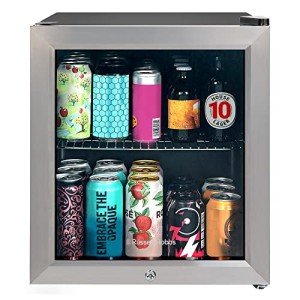The Importance of Temperature-Controlled Fridges in Various Industries
Temperature-controlled fridges are a vital element in numerous markets, consisting of healthcare, food and beverage, pharmaceuticals, and laboratories. These specialized refrigerators are created to preserve a consistent temperature, which is vital for keeping delicate products, samples, and substances. In this post, we will check out the different types of temperature-controlled fridges, their applications, and the advantages they provide.
What are Temperature-Controlled Fridges?
Temperature-controlled fridges, also referred to as accuracy refrigerators, are developed to preserve a precise temperature level range. www.frydge.uk are geared up with innovative temperature level control systems, which can be set to particular temperature levels, and are designed to lessen temperature fluctuations. These fridges are offered in numerous sizes, from small, compact units to big, walk-in models.
Types of Temperature-Controlled Fridges
There are several types of temperature-controlled fridges, each designed for particular applications:
- Laboratory Refrigerators: These fridges are created for laboratory settings and are normally utilized to save biological samples, vaccines, and other temperature-sensitive materials.
- Pharmaceutical Refrigerators: These fridges are developed for saving pharmaceutical products, consisting of medications, vaccines, and other temperature-sensitive compounds.
- Medical Refrigerators: These fridges are developed for medical settings and are usually used to save medical materials, including vaccines, blood, and other temperature-sensitive products.
- Food and Beverage Refrigerators: These fridges are developed for food and beverage applications, including restaurants, cafes, and catering services.
- Industrial Refrigerators: These fridges are designed for industrial applications, consisting of food processing, production, and storage.
Applications of Temperature-Controlled Fridges
Temperature-controlled fridges have numerous applications throughout different industries:
- Healthcare: Temperature-controlled fridges are utilized in hospitals, centers, and health care facilities to keep medical materials, including vaccines, blood, and other temperature-sensitive materials.
- Food and Beverage: Temperature-controlled fridges are used in dining establishments, coffee shops, and catering services to save food and drinks at precise temperatures, guaranteeing food security and quality.
- Pharmaceuticals: Temperature-controlled fridges are utilized in pharmaceutical manufacturing, storage, and distribution to preserve the quality and effectiveness of medications and vaccines.
- Laboratories: Temperature-controlled fridges are utilized in laboratories to save biological samples, vaccines, and other temperature-sensitive materials.
Advantages of Temperature-Controlled Fridges
Temperature-controlled fridges provide a number of advantages, consisting of:
- Precision Temperature Control: Temperature-controlled fridges offer precise temperature control, which is necessary for keeping sensitive items, samples, and compounds.
- Increased Safety: Temperature-controlled fridges make sure the safe storage of temperature-sensitive products, decreasing the danger of contamination and spoilage.
- Enhanced Quality: Temperature-controlled fridges preserve the quality of items, samples, and substances by keeping them at exact temperature levels.
- Regulatory Compliance: Temperature-controlled fridges assist organizations comply with regulatory requirements for the storage of temperature-sensitive products.
- Energy Efficiency: Temperature-controlled fridges are developed to be energy-efficient, decreasing energy usage and costs.
Features to Consider When Choosing a Temperature-Controlled Fridge
When selecting a temperature-controlled refrigerator, consider the following functions:
- Temperature Control: Look for a refrigerator with sophisticated temperature level control systems, consisting of digital temperature screens and alarms.
- Insulation: Choose a fridge with premium insulation to lessen temperature level fluctuations.
- Shelving: Consider a fridge with adjustable shelving to accommodate different sizes and kinds of containers.
- Humidity Control: Look for a refrigerator with humidity control includes to preserve optimal humidity levels.
- Security: Choose a fridge with secure locking mechanisms to avoid unauthorized access.
- Monitoring: Consider a refrigerator with remote tracking abilities to track temperature level and humidity levels.
- Upkeep: Look for a fridge with easy upkeep functions, including replaceable filters and cleaning up systems.
Frequently Asked Questions
Q: What is the difference in between a temperature-controlled refrigerator and a standard fridge?
A: A temperature-controlled fridge is created to maintain an accurate temperature variety, while a standard fridge is developed for general-purpose storage.
Q: What are the benefits of utilizing a temperature-controlled refrigerator in a lab setting?
A: Temperature-controlled fridges in laboratory settings offer accurate temperature level control, increased security, improved quality, and regulatory compliance.
Q: How do I pick the best temperature-controlled refrigerator for my service?
A: Consider elements such as temperature control, insulation, shelving, humidity control, security, monitoring, and upkeep when choosing a temperature-controlled refrigerator.
Q: Can temperature-controlled fridges be used for keeping food and drinks?
A: Yes, temperature-controlled fridges can be used for keeping food and beverages, particularly in restaurants, coffee shops, and catering services.
Q: Are temperature-controlled fridges energy-efficient?
A: Yes, temperature-controlled fridges are created to be energy-efficient, reducing energy intake and costs.
In conclusion, temperature-controlled fridges are essential parts in numerous markets, offering exact temperature control, increased safety, improved quality, and regulative compliance. When picking a temperature-controlled refrigerator, think about features such as temperature control, insulation, shelving, humidity control, security, tracking, and upkeep. By selecting the ideal temperature-controlled refrigerator, organizations can guarantee the safe and efficient storage of temperature-sensitive products.

